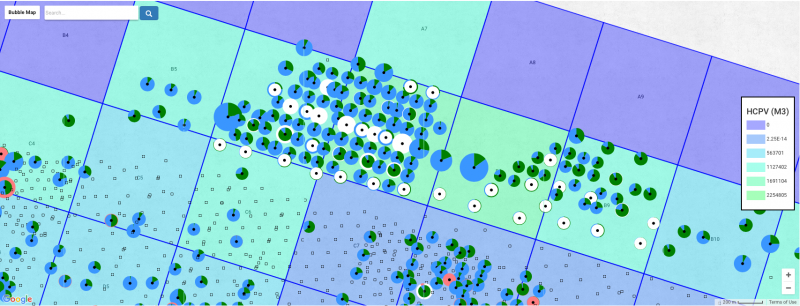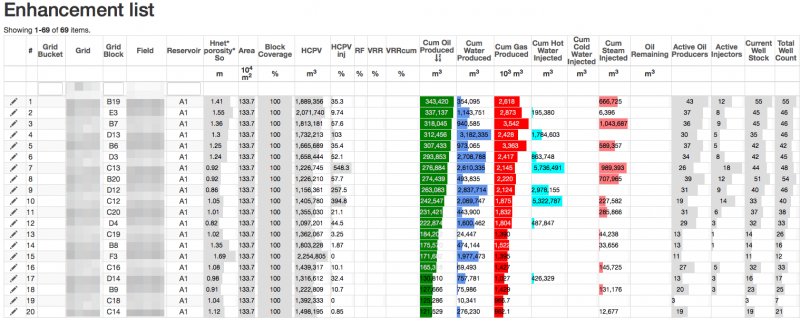Difference between revisions of "Mature Water Flood Analysis"
From wiki.pengtools.com
| Line 26: | Line 26: | ||
*Upload [[Well]]s | *Upload [[Well]]s | ||
*Upload [[Deviation Survey]]s | *Upload [[Deviation Survey]]s | ||
| − | *Upload [[ | + | *Upload [[Perforations]] |
*Upload [[Well Log Interpretion]]s | *Upload [[Well Log Interpretion]]s | ||
*Upload [[Reservoirs]] | *Upload [[Reservoirs]] | ||
| Line 38: | Line 38: | ||
This check is valuable when production/injection allocation between the [[Reservoirs]] is an issue. | This check is valuable when production/injection allocation between the [[Reservoirs]] is an issue. | ||
| + | |||
| + | ====9. Conclusions ==== | ||
| + | The typical actions are: | ||
| + | *Convert producing well to injector | ||
| + | *Increase/Decrease injection rate | ||
| + | *Add/squeeze [[Perforations]] | ||
| + | *Drill additional production/injection well | ||
===References=== | ===References=== | ||
Revision as of 13:57, 31 January 2017
Contents
Mature Water Flood Analysis (MWFA)
Mature Water Flood Analysis is a workflow for identifying the performance gaps in the mature waterfloods performance.
As a result Mature Water Flood Analysis generates Blocks/Patterns Enhancement List.
Workflow
- Upload the required data (see below)
- Check production/injection by Completions, define Reservoirs and Objects for analysis
- Gridding - Divide the field into Patterns/Blocks/Buckets
- Calculate STOIIP for each reservoir using blocks
- Match STOIIP to official numbers by changing the edge Blocks areas
- Make Plots (by field, by reservoir, by block):History, RF vs HCPVinj, RF vs well spacing, WOR vs Np, VRR vs t
- Make Maps (by reservoir) showing Blocks: HCPV, HCPVinj, RF, VRR
- Calculate Blocks Enhancement List
- Draw conclusions
1. Data Upload
- Create Fields
- Upload Wells
- Upload Deviation Surveys
- Upload Perforations
- Upload Well Log Interpretions
- Upload Reservoirs
- Upload PVT
- Upload Monthly Measures
2. Completions Check
- Look through the Completions with the commingled Reservoirs production
- Decide whether the commingled Reservoirs should be grouped as Objects for the further analysis or treated individually.
This check is valuable when production/injection allocation between the Reservoirs is an issue.
9. Conclusions
The typical actions are:
- Convert producing well to injector
- Increase/Decrease injection rate
- Add/squeeze Perforations
- Drill additional production/injection well
References
Wolcott, D. ; Applied Waterflood Field Development, Energy Tribune Publishing Inc., 2009.


